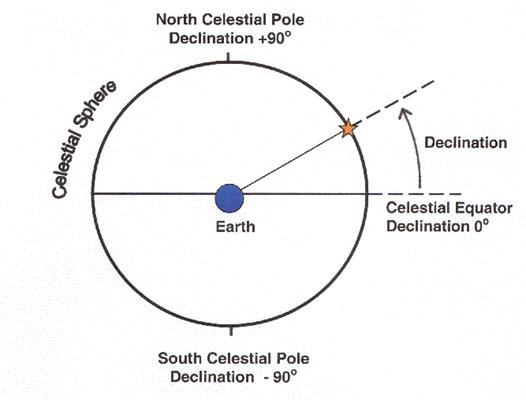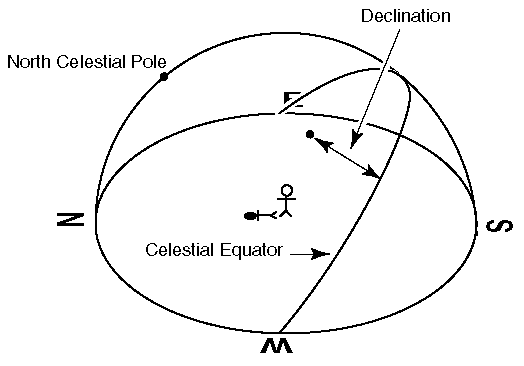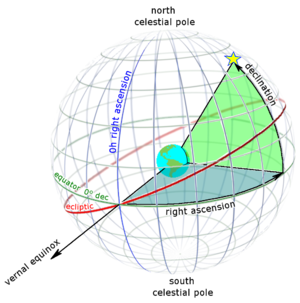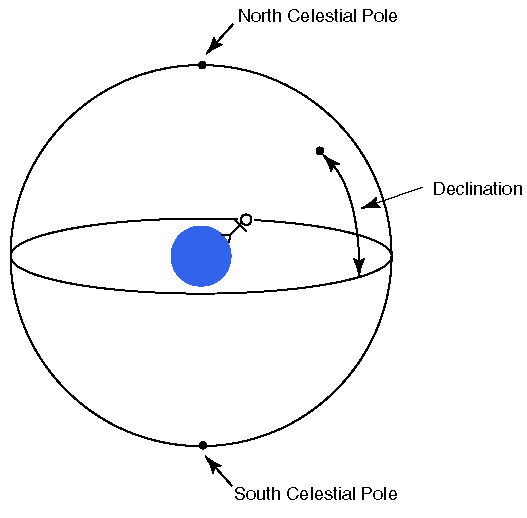
noun
- a bending, sloping, or moving downward.
- deterioration; decline.
- a swerving or deviating, as from a standard.
- a polite refusal.
- Astronomy. the angular distance of a heavenly body from the celestial equator, measured on the great circle passing through the celestial pole and the body.
- variation(def 8).
- the formal refusal by a nominee of a nomination to public office.
noun
- astronomy the angular distance, esp in degrees, of a star, planet, etc, from the celestial equator measured north (positive) or south (negative) along the great circle passing through the celestial poles and the bodySymbol: δ Compare: right ascension
- See magnetic declination
- a refusal, esp a courteous or formal one
late 14c. as a term in astronomy, from Old French declinacion (Modern French déclinaison), from Latin declinationem (nominative declinatio), noun of action from past participle stem of declinare (see decline). It took on various other senses 15c.-17c., most now obsolete.
n.
- A bending, sloping, or other deviation from a normal vertical position.
- A deviation of the vertical meridian of the eye to one or the other side due to rotation of the eyeball about its anteroposterior axis.
- On the celestial sphere, the position of a celestial object north or south of the celestial equator. Declination is measured in degrees along a great circle drawn through the object being measured and the north and south celestial poles, with positive values north of the celestial equator and negative values south of it, so that the equator itself is 0° and the north and south celestial poles are +90° and -90° declination respectively. See more at equatorial coordinate system.
- See magnetic declination.
 Liberal Dictionary English Dictionary
Liberal Dictionary English Dictionary


